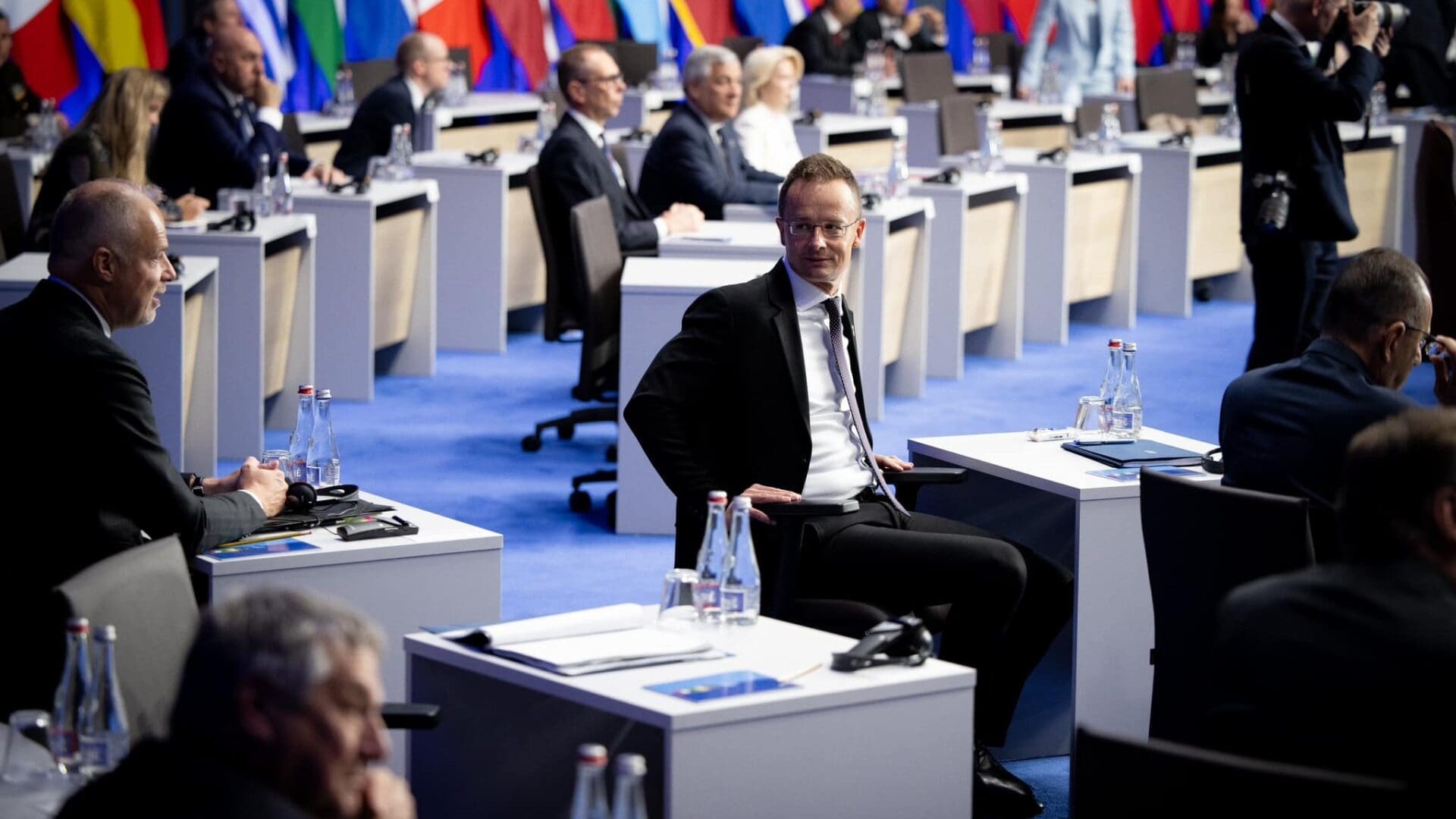The danger of war escalation has been successfully avoided, as Ukraine did not receive an invitation or a specific timetable for future accession at the NATO summit, Minister of Foreign Affairs and Trade Péter Szijjártó declared in Vilnius on Wednesday.
The minister reported on the final day of the NATO summit that Ukraine achieved modest results compared to certain expectations. ‘Practically, only the transformation of the NATO-Ukraine Committee into the NATO-Ukraine Council represents any progress in NATO-Ukraine relations. Responsibility prevailed, and NATO finally adopted a responsible stance,’ he said.
‘We have managed to make a decision that does not carry the risk of war escalation, and the member states have made it clear that Ukraine can only receive an invitation to join NATO if the country fulfils all the necessary conditions and
if the allies unanimously agree on it in the future,’
he added. He emphasised that a country at war cannot become a NATO member because the expansion of the military alliance should enhance community security rather than compromise it. Ukraine’s admission today would entail the risk of getting entangled in the armed conflict, which needs to be avoided. ‘There is no invitation, no timetable for Ukraine, and I believe that in this situation, this was the only responsible decision that NATO could make,’ he emphasised. Szijjártó pointed out that since there was no invitation or timetable, there can be no talk of any ‘detours’ or ‘fast lanes’ regarding Ukraine’s accession. Furthermore, the Ukrainian government still needs to develop annual national plans, which also require political reforms, such as the protection of minority rights, as NATO is not just a defence alliance but also a community based on shared values.
NATO-csúcs 2. nap – élőben Vilniusból | NATO-csúcs 2. nap – élőben Vilniusból | By Szijjártó Péter | Facebook
NATO-csúcs 2. nap – élőben Vilniusból
‘These annual national plans will be continuously evaluated by foreign ministers, so we will be present, and we will pay particular attention to the respect for minority rights,’ he stated. The minister also informed that the leaders of NATO countries will hold consultations with their Australian, South Korean, Japanese, and New Zealand counterparts. He emphasised that recent geopolitical events have increased the importance of strengthening cooperation with Pacific partners. ‘We fully support this because Japan and South Korea are also our strategic partners. We have close political relations, and many investments come from these two countries to Hungary,’ he pointed out. ‘At the same time, it is equally important for us that NATO does not adopt an anti-China stance. Let’s make it clear that NATO is not an anti-China organisation. It was not created against China, and its current operations are not directed against China.
We do not consider China a risk, adversary, or enemy,’
he emphasised. ‘We believe that cooperation with China, similar to cooperation with South Korea and Japan, offers huge opportunities and great potential,’ he added.
Szijjártó welcomed Hungary’s accomplishment of meeting NATO’s target ahead of schedule by raising defence expenditures to over 2 per cent of gross domestic product (GDP). ‘Moreover, when we talk about the defence of our country, we are not only referring to military capabilities but also comprehensive economic development and the establishment of a significant defence industry,’ he said. ‘Therefore, we have fulfilled our obligations towards NATO. We have exceeded the 2 per cent threshold and fulfilled our commitment to allocate more than one-fifth, over 20 per cent, of defence spending to investments. Once again, we are in the category of reliable allies,’ he concluded.
Related articles:








